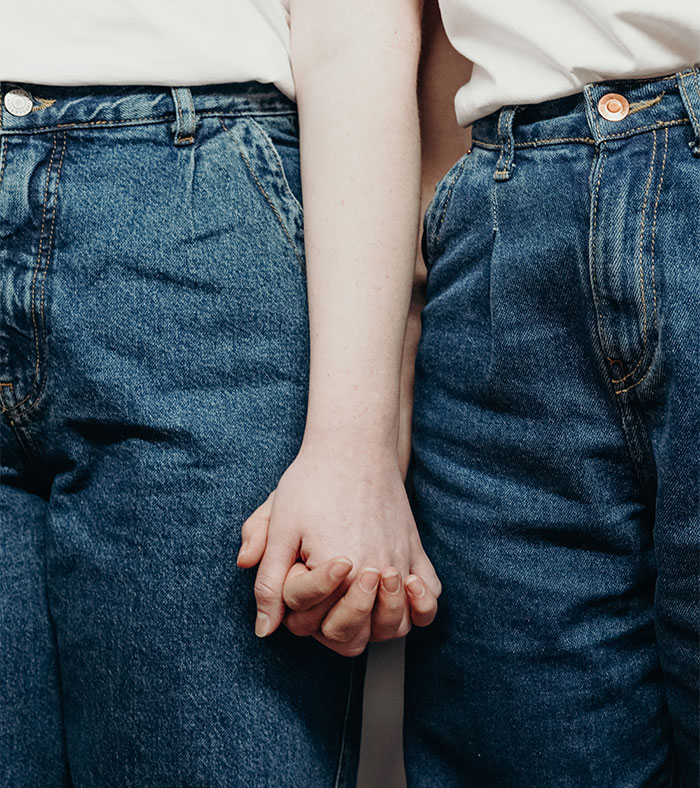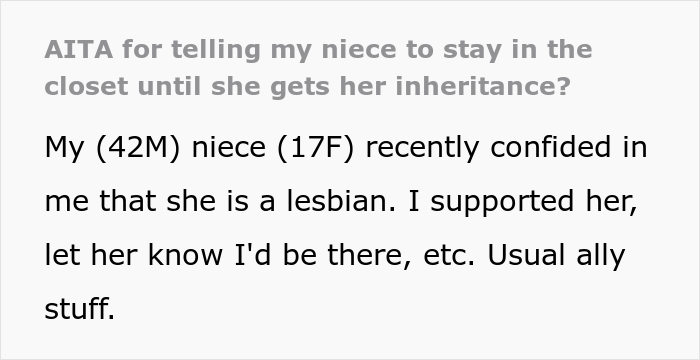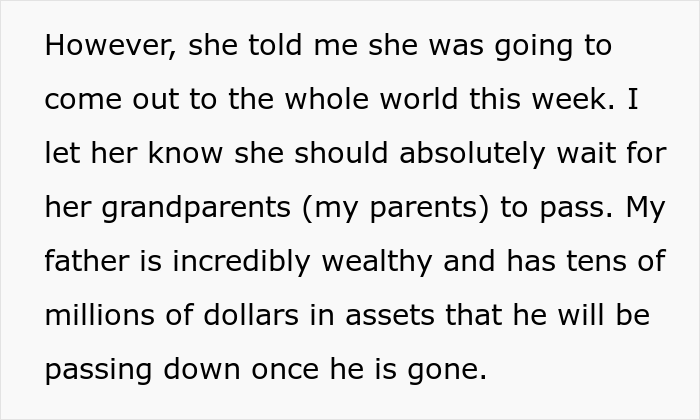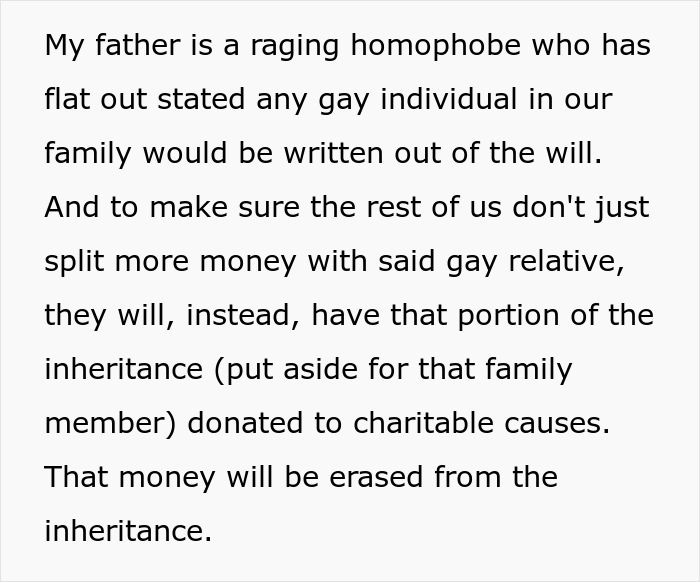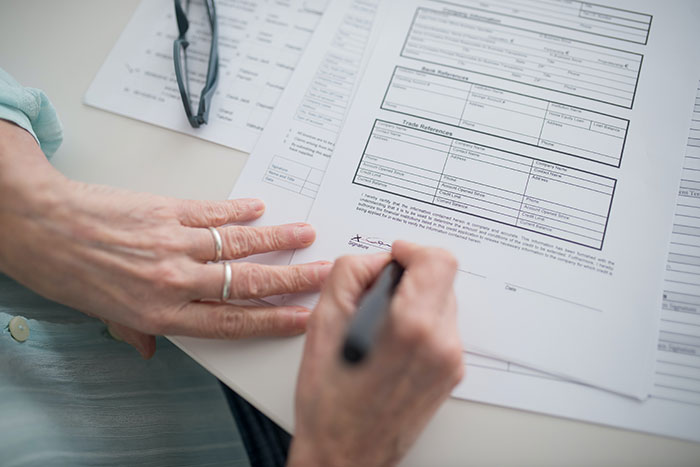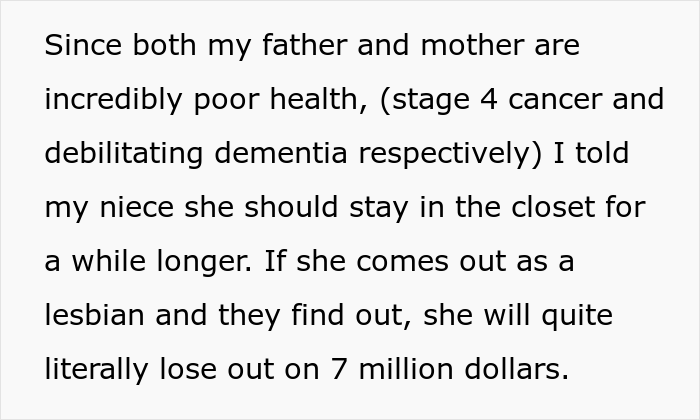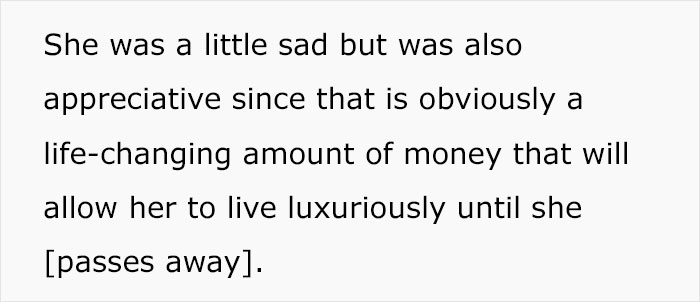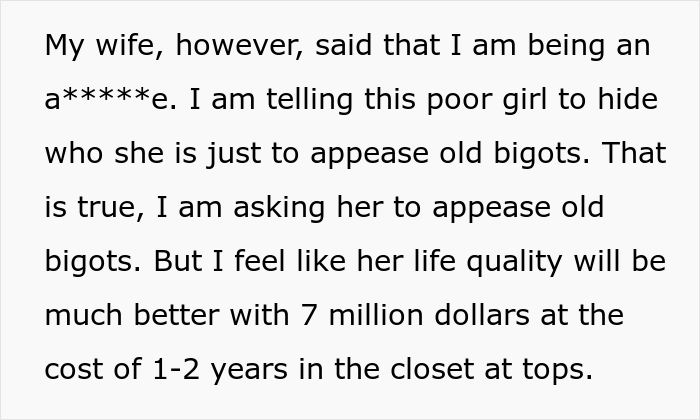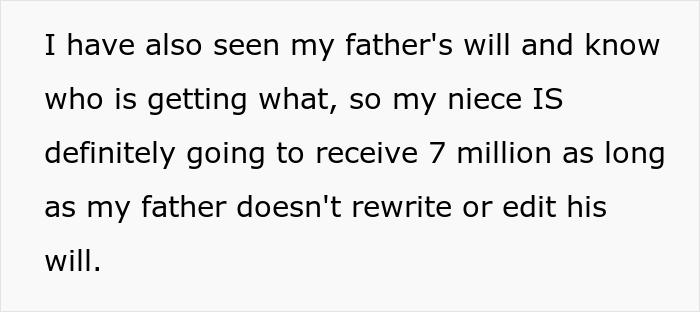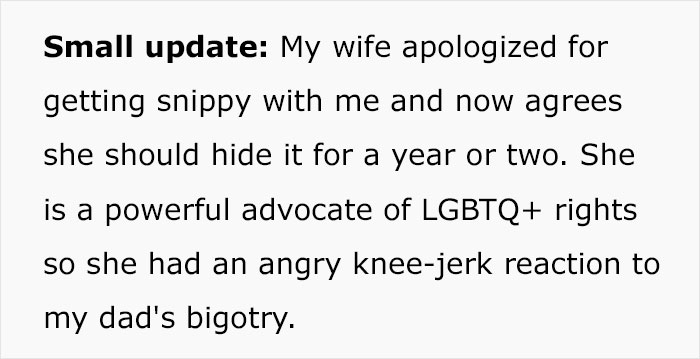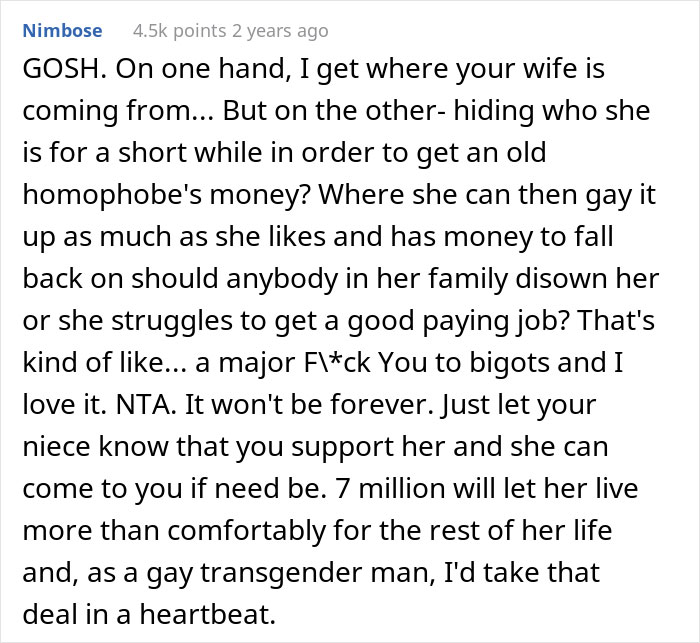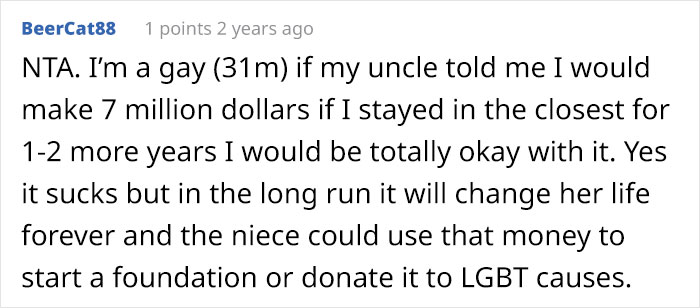Our decisions are rarely black and white. They’re usually grey. Full of nuance. Even the ones that look straightforward at first can turn into real head scratchers and heart tearers.
(Un)fortunately, Reddit user ThrowAwayz201301 has just had to teach this to his 17-year-old niece.
You see, the teen revealed to her uncle that she’s planning to tell the whole world she’s a lesbian. As supportive as he considers himself to be of her, the man, however, advised her to wait a little while longer—as this would make her rich biggot grandpa remove her from his multi-million dollar will.
At first, the uncle was confident he made the right choice when informing the teen about the retaliation. But after talking to his wife, he’s no longer so sure about telling his niece she has to suppress her identity. So he told the whole story to the subreddit ‘Am I the [Jerk]?‘, asking its members to share their take on it.
This 17-year-old wanted to tell her family that she’s a lesbian
Image credits:cottonbro (not the actual photo)
But her uncle said it would cost her 7 million dollars
Image credits: Kampus Production (not the actual photo)
Image credits: ThrowAwayz201301
Coming out is often portrayed as a one-time experience. The stereotype paints a picture of a young LGBTQ+ individual accepting themself and deciding to disclose it to everyone in their lives. They are then met with love and acceptance. Nowadays, they might even get a party.
But this simplified view minimizes the complexity of the process, which, as we can see, in reality, can be a series of coming-outs.
Mental health clinician, supervisor, educator, and advocate Shainna Ali Ph.D., said that LGBTQ+ people face a number of stressors when considering telling the world the truth, and are plagued by questions such as:
- Will ____ understand?
- Will ____ still treat me the same way?
- Will ____ judge me?
- Will ____ be angry?
- Will ____ be sad?
- Will ____ hurt me?
- Will I lose my job?
- Will I lose my home?
- Will I be safe?
Enduring these stressors, LGBTQ+ individuals feel lonely, disconnected, confused, sad, ashamed, fearful, angry, and vulnerable. These stressors help to explain the unfortunate statistic that LGBTQ+ folks are more than twice as likely as heterosexuals to experience a serious mental health concern.
The original poster of the story (OP) joined the discussion in the comments to clarify some details
“I never thought I’d have trouble coming out,” Monnica T. Williams, Ph.D., ABPP, who is a licensed clinical psychologist and associate professor at the University of Ottawa in the School of Psychology, said.
“I grew up in a relatively progressive American city, and in a time after many states had already legalized marriage equality — the right to marry regardless of sexual orientation. But sure enough, when I began my first relationship with another woman at the age of 26, I was feeling a lot of negative emotions I never thought I would experience. Coming out in a city smack in the middle of the Bible Belt and growing up Catholic really did a number on my newly gay self-identity. Thoughts like ‘this is wrong’ and ‘I’m a sinner’ would literally come into my head when just kissing my new girlfriend.”
Although some people had a hard time coming up with a verdict, most said that the OP did the right thing
Williams said internalized homophobia can be exacerbated by a number of factors. “Certain religious beliefs are a major key player in the impact of internalized homophobia. Some religions promote messages that express bias and animus toward LGBTQ+ people and condemn us as a group.”
However, it’s important to mention that religion is not the only reason behind these negative feelings and not all religions condemn people for being LGBTQ+ in the first place.
“Societal beliefs and social support definitely play a role as well,” Williams added. “Oftentimes, people develop internalized homophobia due to negative messages they received from society as a whole about LGBTQ+ people, from public debates on sex education to reports of discrimination.”
According to the psychologist, many people are afraid of coming out due to rejection from their family members and friends based on media reports of family rejection, and these unfortunate realities can further exacerbate the experience of internalized homophobia.
Let’s hope the 17-year-old won’t lose the courage to be herself, no matter how she proceeds.


